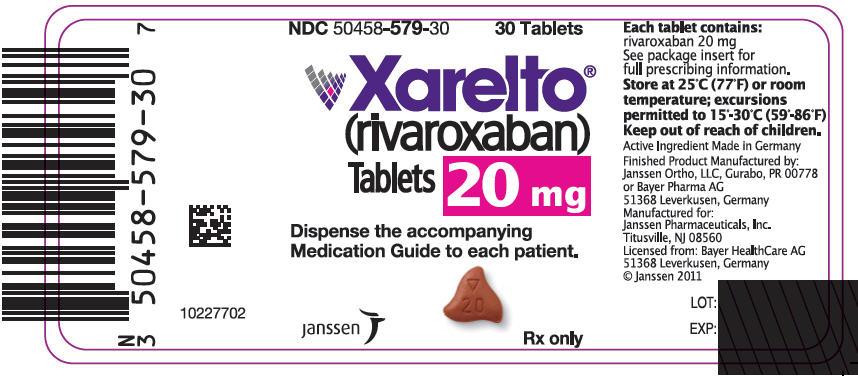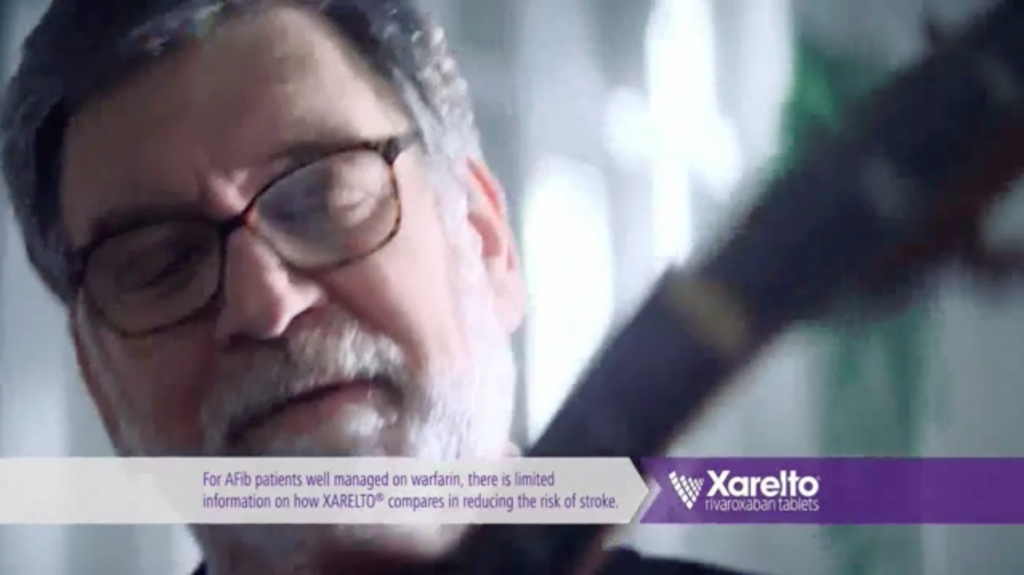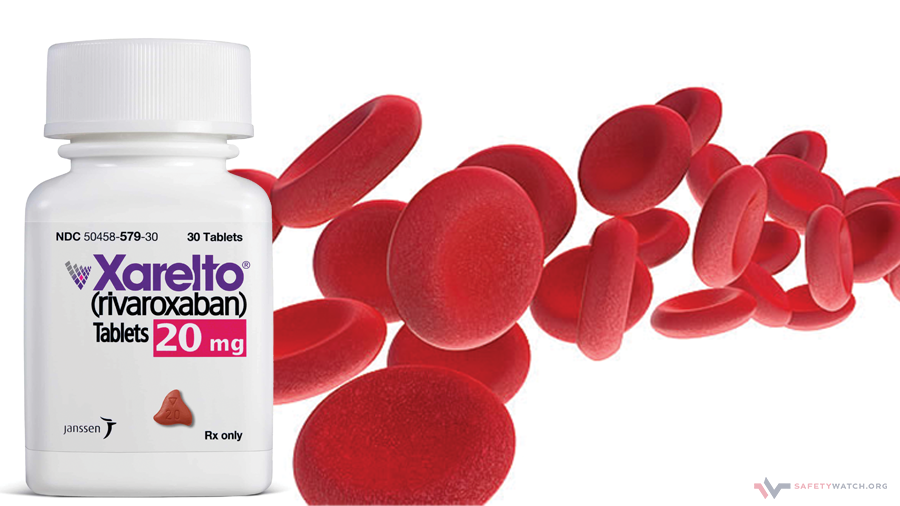Written by Emre Ertugrul
Courtrooms are awaiting new turning points with controversial blood-thinner Xarelto’s ® recent label change on Oct. 11 as a clinical testing method used to gain the drug’s federal approval is revealed to be defective in a recent study.
Janssen Pharmaceuticals, Inc., (a division of Johnson & Johnson) and Bayer’s drug Rivaroxaban, sold under the name Xarelto®, is an anticoagulant (blood thinner) used to prevent blood clots that could lead to strokes in patients with non-valvular atrial fibrillation, patients undergoing knee and hip reconstruction or replacement surgery, patients diagnosed with or treated prophylactically for Deep Vein Thrombosis and for secondary prevention in patients who have been diagnosed with an Acute Coronary Syndrome event.
Janssen and Bayer, the companies responsible for the design, research, manufacturing and distribution of the drug, have been the subject of over 21,000 lawsuits filed in the U.S. since the drug received approval in 2011. The recent conclusion regarding the clinical test that resulted in the label change has seconded the patients’ claims that the drug makers failed to adequately inform doctors about the risky nature of the drug.
The risks of internal bleeding and stroke caused by the medicine were concealed by the drug makers for commercial purposes, attorney Christopher Kyle Johnston from the Johnson Law Group told SafetyWatch in a recent statement – a shortfall of the manufacturers as the Title 21 of the U.S. Code of Federal Regulation states that drug labels should include summary and scientific information, along with dosage detail.
“Monitoring for the anticoagulation effect of rivaroxaban using a clotting test (PT, INR, or aPTT) for anti-factor XA (FXa) activity is not recommended,” Janssen Pharmaceuticals, Inc., changed the label of the drug last month – in another saying, the International Normalized Ratio (INR) testing used in the approval – and in dosing the drug in patients by doctors – is defective, rendering the Xarelto clinical trials using the testing are questionable or invalid.
Prior to the Federal Drug Administration’s (FDA) approval of Xarelto® in 2011, clinical trials were conducted by Janssen and Bayer[1] regarding the safety and efficacy of Xarelto® as compared to other anticoagulants.

[1]Bayer collectively refers to Bayer Corporation, Bayer Healthcare Pharmaceuticals, Inc., Bayer Pharma AG (formerly known as Bayer Schering Pharma AG) and Bayer Healthcare LLC.
Despite defending more than 21,000 lawsuits over patients with heavy and sometimes fatal bleeding events, Janssen and Bayer refuse to provide patients and their healthcare providers with the quantifiable information in their possession regarding the true risks of major life threatening injuries that enable doctors and patients to make educated decision whether or not the risk a life threatening bleed on Xarelto® is worth the danger or to use another anticoagulant with fewer risks, such as Eliquis.
Even though Xarelto’s® recent label changes have been implemented, essential information about the severity of the risk associated with prescribing Xarelto® is still being recklessly overlooked. For example, the 2018 Xarelto® label does not address the fact that using Xarelto® and aspirin concomitantly can cause a 93 percent increased chance of major life-threatening bleeding event, compared to just taking Xarelto®.
The INR testing, normally used in clinical trials to establish the safety and efficacy, was also used to compare Xarelto to other anticoagulants prior to FDA approval and its release on market.
Prior to the label change that revealed the lack of standards to determine the correct dosage for any given patient, many physicians relied on the INR testing for monitoring the drug in their patients.
Healthcare providers have never been provided with quantifiable information as to the risks of Xarelto® use. This quantifiable information is critical to provide patients with the best care possible. Furthermore, due to the medication’s drastic fluctuation from patient to patient, some individuals can have a higher concentration of Xarelto in their system allowing them to be at a higher danger Xarelto® for bleeding, versus another individual taking the same dosage. Even though testing has been made available to allow for monitoring the amount of the drug in a patient’s system, Xarelto’s® manufacturers continue to deny that testing is available to measure the concentration of the drug.
In a statement given to SafetyWatch, Christopher Kyle Johnston, founding attorney from the Johnston Law Group, told that the entire FDA system approval process is broken and in dire need of repair, and most consumers have no clue about how the FDA approval process actually works.
“As a result of this misunderstanding consumers and many healthcare professionals are left with a false sense of security mistakenly believing ‘approved by the FDA’ means an independent and unbiased investigation, research and clinical studies were conducted verifying the representations made by manufacturer seeking to have the FDA approve their product,” he said.
“Unfortunately, that could not be farther from the truth,” said Johnston. “The investigation, research and clinical studies provided to and relied on by the FDA are provided by the very manufacturer seeking approval of their product.”
According to Johnston, solely relying on a company desiring FDA approval to conduct the only clinical studies, research and investigation defies logic. “It’s a classic case of the of fox guarding the hen house. The public deserves better,” he said.
The October 2018 label change includes the FDA’s recent approval of AndexXA, a reversal agent to counteract Xarelto® toxicity, instructions not to use the PT, INR or aPTT blood test results to assess the level of Xarelto® present in the patient’s system.
Mr. Johnston told SafetyWatch that the Xarelto® label change still does not go far enough to adequately warn consumers of the potentially life-threatening dangers they face. “Janssen and Bayer continue to doublespeak their message about the serious risk associated with Xarelto,” he said.
An example of this doublespeak is seen as recent as November 2018 in a nationally publicized Xarelto® commercial.

Janssen Pharmaceuticals, Inc and Bayer state “[For atrial fibrillation] patients well managed on Warfarin, there is limited information on how Xarelto® compares in reducing the risk of stroke.” The implication being that Xarelto® reduces risks of stroke similar to Warfarin. The problem with this recent advertising by Xarelto® manufacturers is that the FDA specifically warned Janssen Pharmaceuticals, Inc., not to compare Xarelto to Warfarin related to reduced risks of stroke because there are no clinical studies to support assertions that Xarelto® is more effective than Warfarin in reducing the risk of stroke.
Since the release on market, Xarelto has been advertised by Janssen as a revolutionary blood-thinner among its kind that has fewer monitoring requirements such as fewer blood draws. In the following years, the company has caused eyebrows to raise due to its advertising downplaying the effects of the drug to users.
According to Johnston, this type doublespeak is designed to leave the general public through direct consumer marketing with the impression that Xarelto does compare to Warfarin by reducing the risk of stroke.
“If Janssen Pharmaceuticals and Bayer had not intended to plant the seed that Xarelto is equal to Warfarin in reducing the risk of strokes then it would have been omitted from the commercial,” Johnston said.
“The public has a right to know the actual risks of life-threatening bleeding events in order to have a meaningful discussion with their health care providers and make an informed decision about whether to risk their life or choose another anticoagulant like Eliquis that has fewer risks,” said Johnston. “It is time the public sends a message that this type of conduct is unacceptable, and we will no longer accept the threat to our life.”
In addition to the October label change, Xarelto recently failed to pass two large clinical studies that concluded that the drug did not reduce the risk of “a composite endpoint of symptomatic venous thromboembolism.
Janssen announced on Aug. 27 the results of the clinical studies which both stated that there was no significant difference found between Xarelto and placebo for the primary efficacy endpoints, although the drug demonstrated a “consistent safety profile.”
The second study showed that the drug had no significant benefit on death from any cause compared to placebo.
“The only way to make companies such as Janssen and Bayer chance their standard practices is to do something to capture their attention,” Johnston said. “Unfortunately, one of the few ways to do this is to make them financially pay for the harm they have caused.”
When a company’s bottom line is affected, changes are made, he added. “It’s just unfortunate that corporations don’t make change for the right reasons.”
With the recent developments on the Xarelto debate and the revealed information that there is still not a recommended test for physicians to dose and monitor Xarelto, new Xarelto hearings are expected to bring out turnarounds.

Emre Ertugrul
Emre Ertugrul is a reporter for Safetywatch.org, covering controversial drugs and medical devices, reporting on health policy and the FDA. He studied journalism with concentration in investigative reporting at Boston University. Previous experience with the New England Center for Investigative Reporting include tax issues, racial profiling and criminal justice. He also worked as an international news intern at Milliyet Newspaper and is currently one of the editors for Gazet.com.

Get a Free Xarelto Case Review
If you are one of the thousands of people who have experienced bleeding after taking Xarelto, you may be eligible to receive a compensation for your injuries.


